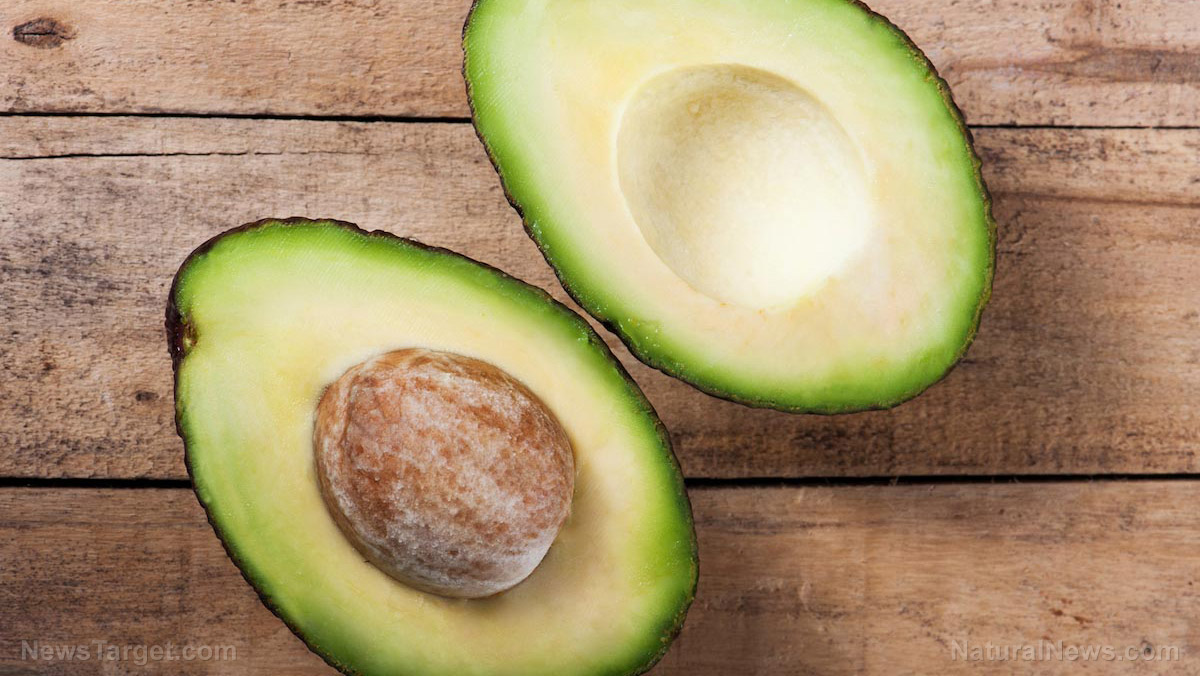Avocado seeds contain compounds that reduce inflammation
08/15/2019 / By Edsel Cook

Pennsylvania-based researchers announced a new medicinal application for avocado pits. They recently derived an extract from avocado seed that helps regulate inflammation linked to cancer and other serious diseases.
After eating or removing the edible part of the avocado, people usually throw away the inedible pit. But the new study suggests that the seed may be a good source of inflammation-fighting compounds that can be added to foods or used as medicine.
The Pennsylvania State University (Penn State) research team initially developed the avocado extract as a food coloring. They used pigments from the avocado seed to give the colorant a bright orange color.
In their paper published early this year, Penn State associate professor Joshua Lambert and his colleagues confirmed the anti-inflammatory properties of the avocado seed-based extract. They searched for links between the plant-based pigments and the extract’s ability to stop the release of molecules that trigger inflammation. (Related: You know about the health benefits of olive oil, but how about avocado oil?)
Avocado seed contains natural compounds that help reduce inflammation
The researchers tested the avocado seed extract on cell cultures and enzymes that play vital roles in immune response and inflammatory diseases. Lambert’s team began by culturing macrophages, a class of large immune cells that engulf pathogens and digest them.
They treated some of the macrophage cultures with their avocado seed extract. Afterward, they stimulated both treated and untreated immune cells with inflammation-causing molecules.

The researchers evaluated the concentrations of critical pro-inflammatory mediators. They also analyzed signaling pathways associated with inflammation in the cells.
“The next step, before we can draw further conclusions about the anti-inflammatory activity of this avocado seed extract, will be to design animal model studies,” remarked Lambert. “For example, we can look at a mouse model of ulcerative colitis where we formulate the avocado seed extract into the mice diet and look at whether it is able to reduce inflammation.”
The results of their experiment proved that avocado seeds contain bioactive compounds with anti-inflammatory properties. Lambert added that doses in the low microgram-per-milliliter range achieved very good levels of inhibitory activity. The results proved promising enough to merit further investigation.
Earlier studies have established strong links between chronic inflammation and serious diseases like arthritis, cancer, cardiovascular diseases, and colitis. The avocado seed extract may offer a natural means of ameliorating the symptoms of these diseases or preventing their onset.
From food waste product to high-value source of anti-inflammatory substances
Consumers and the food industry alike treat avocado seeds as food waste products. However, the findings of the Penn State researchers may change people’s minds about the pits of the nutritious fruit.
“If we can return value to avocado growers or avocado processors, that would be a benefit,” Lambert stated. “And if we can reduce the amount of this material being dumped in landfills, that would be a good thing, given the huge amount of avocados that are consumed.”
His laboratory previously evaluated cocoa, green tea, and other sources of bioactive compounds. In comparison with those high-value sources, avocado seeds are much cheaper.
Lambert received help from Penn State student Deepti Dabas and fellow professor Gregory Ziegler. Their findings were published in the journal Advances In Food Technology and Nutritional Sciences.
Foreseeing the potential of their food colorant product, Lambert and Ziegler established the start-up company Persea Naturals in 2016. They also applied for a patent for the use of their avocado seed extract, which could become even more valuable as an anti-inflammatory food ingredient.
Sources include:
Submit a correction >>
Tagged Under:
alternative medicine, anti-inflammatory, avocado seeds, avocados, breakthrough, clean food, discovery, disease treatments, food cures, food is medicine, food waste, functional food, immune response, inflammation, macrophages, natural cures, natural medicine, prevention, research, waste reduction
This article may contain statements that reflect the opinion of the author





















